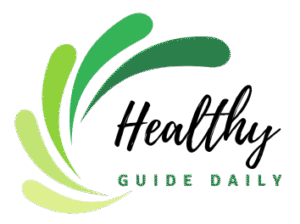Parents desperate to help their ADHD children focus are turning to supplement alternatives as new research reveals promising natural intervention.
Story Highlights
- Recent clinical trials show broad-spectrum micronutrients improve ADHD concentration with minimal side effects
- High-dose omega-3 EPA demonstrates focused attention benefits for children with low baseline levels
- Supplement industry growth reflects parental frustration with traditional pharmaceutical approaches
- Mixed research results highlight need for individualized treatment rather than one-size-fits-all solutions
Clinical Breakthrough Offers Hope for Natural ADHD Treatment
Oregon Health & Science University researchers documented significant improvements in concentration and mood among children with ADHD using broad-spectrum micronutrient supplementation. The randomized controlled trial demonstrated these natural interventions produced minimal side effects compared to traditional stimulant medications. Parents seeking alternatives to pharmaceutical dependency now have peer-reviewed evidence supporting nutritional approaches. This represents a fundamental shift toward treating root causes rather than simply masking symptoms with powerful drugs.
Watch: Top 3 Supplements To Support ADHD
Omega-3 Research Reveals Targeted Benefits
High-dose EPA omega-3 fatty acid supplementation showed particular promise for youth with ADHD who had low baseline EPA levels. Nature journal published findings indicating focused attention improvements in specific subgroups rather than universal benefits. This personalized approach contrasts sharply with the medical establishment’s tendency to prescribe identical treatments regardless of individual biochemistry. The research supports what many parents instinctively understand: children’s nutritional needs vary significantly and require tailored solutions.
Additional studies on magnesium, L-tyrosine, and herbal supplements like Bacopa Monnieri show theoretical promise but lack robust clinical validation. The evidence hierarchy places omega-3 fatty acids and broad-spectrum micronutrients at the top, while amino acids and botanical extracts require further investigation. Parents should prioritize supplements with strongest research backing rather than falling for marketing claims without scientific foundation.
Alternative Treatment Interest
The supplement industry’s growth reflects widespread parental dissatisfaction with conventional ADHD treatment protocols that prioritize pharmaceutical interventions. Families increasingly question long-term stimulant medication effects on developing brains and seek natural alternatives that address underlying nutritional deficiencies.
Regulatory agencies like the FDA maintain stricter oversight of supplement marketing claims while allowing pharmaceutical companies to heavily promote potentially harmful medications to children. Parents must navigate conflicting information sources to make informed decisions about their children’s wellbeing without proper institutional support.
Sources:
Nutritional and herbal supplements in the treatment of ADHD: A systematic review
Vitamins, minerals improve symptoms for children with ADHD
Omega-3 supplementation in attention-deficit/hyperactivity disorder
7 Best Cognitive Enhancers for ADHD







